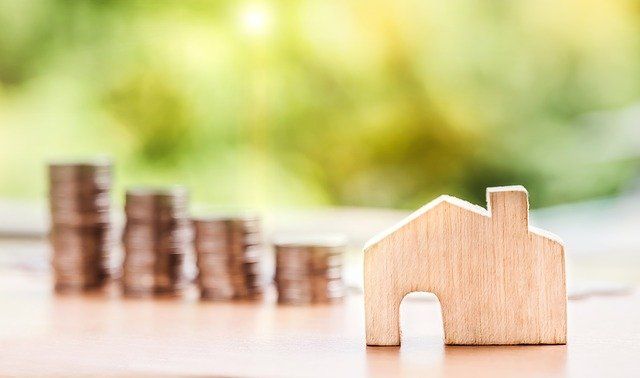When purchasing property in Spain, being organized is the key. Below is an overview of the steps involved in buying a resale property in Spain.
Buying a property is one of the most important decisions you will make. No matter if you are considering buying a luxury villa in Marbella, or an small apartment as a second home. Choose wisely, and you’ll end up with a home that adds value to your life, both monetarily and in terms of enjoyment and quality of life.
Buying a property in Spain doesn’t have to be stressful as long as you understand the conveyancing process and the different steps involved. However, regardless of how well you understand the process, there is no substitute for seeking the support of qualified professionals. It equally important to remember that each case is unique, and there may be concerns that need to be resolved that are particular to your case. Only a qualified and unbiased agent can advise you on what is required.
Purchasing a resale property
Overview of process
The following is a summary of the Spanish conveyancing process involved when purchasing a resale property.
You submit an offer, then negotiate with the vendor until you reach an agreement, after which your solicitor will conduct due diligence and review the relevant contracts. You then sign a private contract with the seller and make an initial payment as stipulated in the contract conditions. This is the moment at which it becomes difficult or impossible to pull out without incurring financial losses. You will then have time to prepare for the deeds to be signed in front of a Notary – usually between one and three months – during which time you can make arrangements such as having your funds in order. You sign the deeds in front of a Notary and take ownership of the property at the agreed time. The final step entails recording your title in the property register, paying any applicable taxes, and connecting utilities.
Making an offer
If you identify a house you wish to buy, you must make a genuine offer to the seller, which will serve as the foundation for your subsequent negotiations. However, before making an offer, you should plan your negotiations approach and identify and prioritise the information you’ll need to move forward. Your real estate agent will guide you within this situation and would negotiate with the vendor to achieve the best price possible.
Consider all the expenses involved
If you want to avoid unpleasant surprises, be realistic about all transaction fees of buying a property in Spain. People frequently use a 10% rule of thumb to estimate transaction costs, however this can vary. Before you start negotiating, try to estimate the expenditures as accurately as possible. They may have an impact on how much you can afford to spend. You should avoid purchasing a property that you cannot afford to renovate, which means you should consider this before making an offer. If you believe that considerable renovations are required but don’t know how much they will cost, you’ll need to factor this into your negotiation strategy.
Consider all factors before making an ofer. If the property needs to be renovated, expenses and taxes associated with the purchase of the property, community costs… Your Real Estate Agent will guide you through this process.
Mortgage
You’ll need a valuation on the property before the bank decides how much they can offer you, so if you’re getting a mortgage, make sure to include this in your talks.
Some vendors will refuse to accept a value until you have signed a private contract committing you to a price because they are concerned that a low assessment may be used against them during negotiations. If you need a mortgage, you should first ask the vendor for permission to have a tasador come to the home. The most common way of doing this is by negotiating a stipulation in the private contract that makes the arrangement contingent on your ability to secure a mortgage.
Solicitor
Once you have decided to go ahead with the purchase and your offer has been accepted, it is time to appoint a solicitor who will guide you through the process and handle all the legal issues involved. Again, your Real Estate Agent will guide you through this process as well.
Negotiating with the vendor
You should have a defined agenda, objectives, and strategy before entering the negotiations. This strategy should be based on what you know about the property, the market, and the vendor (nationality, personal circumstances, how quickly they are looking to sell). It Is key to have a good agent to assist you with the sale. Certified Real Estate agents know the market prices and how to obtain the best price possible.
Issues to negotiate
The key issues to negotiate with the vendor are as follows:

The price
You obviously want to agree on the cheapest price feasible.
The undeclared value
Many vendors in Spain still want a proportion of the whole purchase in cash (known as ‘B’ or negro), although you should avoid this. It is basically fiscal fraud that primarily benefits the seller while exposing the buyer to potential obligations.
Timescales
You must agree on a timescale for signing the public deeds before Notary in advance of signing the private contract. Following the signing of the private contract, it is typical to agree on a deadline of one to three months.
IBI payments in the year of sale
In the year of sale, the municipal rates (Impuesto sobre Bienes Inmuebles – IBI) must be paid. Depending on how the local government charges the rates (annually or quarterly), this can be a confusing matter. If the vendor agrees to pay the IBI for the entire year, you must compensate the vendor for the months during which you were the owner. If you agree to pay the IBI for the entire year, you can subtract the IBI that applies to the vendor from the property’s price. The crucial thing is to discuss this with the vendor ahead of time. It’s worth noting that, starting of the summer of 2016, vendors can charge buyers a pro rata part of the IBI council tax even if no prior agreement has been reached.
Plusvalía
The plusvalia (Impuesto sobre Incremento del Valor de los Terrenos de Naturaleza Urbana) is a municipal tax that is levied on the rise in the value of the land on which the property is built. This tax will be minimal for an apartment that has recently changed hands. The plusvalia, on the other hand, may be fairly high for a detached property with land in a prime residential location that hasn’t changed hands in many years.
By law this tax is paid by the vendor (who has owned the property while it has appreciated in value), and so if the vendor is a Spanish resident, you do not need to discuss the plusvalia unless the vendor brings it up, but make sure your solicitor confirms that the plusvalia is paid by the vendor in the private contract you sign.
When buying from a non-resident, however, you have two options: 1) Have your solicitor accompany the vendor to the town hall to pay the plusvalía immediately after the deeds are signed, or 2) agree to pay the plusvalía and deduct it from the deeds signing payment.
Extras
If you agree to purchase anything other than the fixed elements of the property, this must be agreed upon and documented in an inventory that is part of the contract.
The deposit payment method
If you sign a private contract that requires you to pay a deposit of, say, 10% of the total price, and you and the vendor must agree on a payment mechanism that is acceptable to both of you.
The options are as follows:
- Pay the funds to the vendor
- Pay the funds to the estate agent,
- Pay the funds to the vendor’s solicitor
- Pay the funds to your solicitor.
It is preferable to give the deposit to a third party, such as the solicitor (yours or the vendors’, but ideally yours), who will be responsible for transferring the funds to the proper party based on the contract and the conclusion. Ensure that whoever you pay the money to has a bonded escrow account, since this will give you with additional protection.







